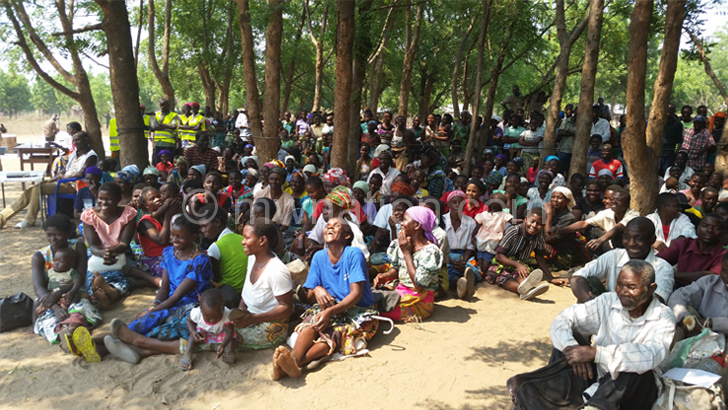The flood victims jigsaw puzzle
As the rainy season sets in across the country government is again grappling with the question on how it can handle effects of excessive rain water which has been a major cause of concern for authorities in the past years.
The picture is complicated with the recent announcement by the Department of Climate Change and Meteorological Services that the 2015/2016 agricultural season will be dominated by the El Nino phenomenon.

El Nino is an irregularly recurring flow of unusually warm surface waters from the Pacific Ocean that disrupts typical regional and global weather patterns threatening to result into hunger, disease and water shortages in east and southern Africa due to flooding and drought.
In January 2015, President Peter Mutharika declared 15 districts disaster areas following devastating floods that swept across the country, killing 106 people and displacing thousands more, especially in the Shire Valley districts of Chikwawa and Nsanje.
Secretary to the Vice-President and Commissioner for Department of Disaster Management Affairs (Dodma) Bernard Sande said government is worried with some traditional leaders who are preventing their subjects from moving upland in flood-prone areas.
“Some chiefs have not been helpful in the quest to mitigate the effects of perennial flooding. They have been stopping their subjects from settling in safer areas. These are unfortunate developments. Government’s approach is not to force people out of their localities. But in the long-term we hope with collaboration from all stakeholders, we will permanently relocate all the affected people,” said Sande.

In 2015, Malawi Government spent over K300 million (about $458 845) on flood recovery in the 15 affected districts, which some Malawians feel could have been used for other activities had the affected people moved to safer places in good time.
“It is not fair that every year government should cough such huge sums of money to rescue and rehabilitate the same people. This is happening while we have other pressing problems such as shortage of medical drugs in public hospitals and hunger,” said Alpheus Bazare from Thabwa in Chikwawa.
But Monica Genti, a businessperson at Chiromo Trading Centre in Nsanje said while government is considering permanently relocating the perennial flood victims, the State must first do a proper inquiry into the reasons.
“Somehow, although I agree that it is not good to be assisted every year, notwithstanding the dangers posed by surging waters, it is important that government should understand the reasons for our continuous stay here. If we move upland, which is far from here, chances are that we might not be able to farm and feed ourselves. That will create the problems,” she said.
District Commissioner for Chikwawa, which is one of the severely hit districts, Bester Mandele said the issue has been sparking hot debate during council meetings in the district.
“Last time we had a full council meeting discussing our district response to floods, members debated this issue at length. Some were of the view that government had already spent a lot of money on the victims; therefore, should just order an involuntary evacuation,” said Mandele.
But he said the meeting decided that there should be a creation of evacuation centres before the onset of the rains so that people in flood-prone areas can be moved to avoid loss of lives.
Currently, both Nsanje and Chikwawa district councils have planned to construct some temporary evacuation centres that would host flood victims once the rain causes floods.
According to Sande, the raising of evacuation centres is part of Malawi Government’s contingency plan for the rainy season that entails, among others, search and rescue operations, monitoring and pre-positioning of rescue personnel and relief items.
However, the question remains whether all the spending of tax payers’ money by government is justified.
“Government must put a stop to this behaviour of people sticking in dangerous spots by denying relief items to those victims that want to be assisted every year. But since these people are also taxpayers, they need to be convinced rather than be ejected forcefully,” said Ernest Goba of Ngabu in Chikwawa.
The 2015 floods affected Nsanje, Chikwawa, Phalombe Zomba; Blantyre, Chiradzulu, Thyolo, Mulanje, Balaka, Machinga, Mangochi, Ntcheu, Salima, Rumphi and Karonga districts, affecting an estimated 1.1 million people. n





